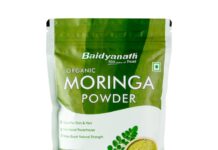
Nestlé posted nine-month sales for 2023, recording an organic growth of 7.8%, a pricing of 8.4% and real internal growth (RIG) of -0.6%. Growth was broad-based across geographies and categories. Nestle’s 8.4% price increase was below the average analyst estimate of 8.6%, which was attributed to higher cost of prices that made shoppers balk.
Total reported sales decreased by 0.4% to CHF (Swiss Francs) 68.8 billion compared to CHF 69.1 billion in the same period in 2022. One CHF is equivalent to around US$1.12. Foreign exchange decreased sales by 7.4%. Net acquisitions had a negative impact of 0.8%.
In its full-year outlook for 2023, the company expect organics sales growth between 7% and 8% and underlying trading operating profit margin between 17.0% and 17.5%. Underlying earnings per share in constant currency is expected to increase between 6% and 10%.
Mark Schneider, Nestlé CEO, said: “Our diversified portfolio and differentiated offerings helped us deliver strong organic growth in the first nine months of the year. Growth was driven by pricing as we continued to navigate historic inflation levels. The recovery of our volume and mix is underway. We are seeing the benefits of our portfolio optimization initiatives and increasing marketing investments behind our billionaire brands. These steps underpin our confidence that real internal growth, the sum of volume and mix, will turn positive in the second half of the year and again become the main driver of growth going forward.
At the same time, Nestlé has further strengthened its nutrition strategy and stepped-up its efforts to guide people towards a balanced diet. Actions include providing clear, front-of-pack portion guidance, transparency on the nutritional value of our products and leading marketing-to-children policies. We also set an ambitious target to grow the sales of our more nutritious products by CHF 20-25 billion by 2030.”
Group sales
Organic growth was 7.8%. Pricing was 8.4%, reflecting the impact of cost inflation over the last two years. RIG was – 0.6%, impacted by portfolio optimization and remaining capacity constraints. In the third quarter, RIG improved to – 0.3%, despite temporary capacity constraints for Perrier and a short-term supply constraint for vitamins, minerals and supplements, which surfaced in August.
Growth was broad-based across most geographies and categories. In developed markets, organic growth was 6.9%, led by pricing with negative RIG. In emerging markets, organic growth was 9.0%, driven by pricing and slightly positive RIG.
By product category, Purina PetCare was the largest contributor to organic growth, with strong momentum across all channels. Purina ONE, Purina Pro Plan and Felix all recorded double-digit growth. Coffee saw high single-digit growth, with positive sales developments across brands and channels. Starbucks products reported strong growth, supported by innovation and the launch of ready-to-drink offerings in South-East Asia and Oceania. Infant Nutrition posted high single-digit growth, with broad-based contributions across brands and geographies.
Confectionery recorded double-digit growth, fueled by a strong sales development for KitKat . Dairy reported high single-digit growth, led by coffee creamers and affordable fortified milks. Prepared dishes and cooking aids posted mid single-digit growth, with strong demand for Maggi. Nestlé Health Science recorded low single-digit growth, as continued momentum for Medical Nutrition was partly offset by a sales decline in vitamins, minerals and supplements. Water posted low single-digit growth, impacted by temporary capacity constraints for Perrier.
By channel, organic growth in retail sales remained robust at 7.1%. E-commerce sales grew by 12.7%, reaching 16.6% of total Group sales. Organic growth of out-of-home channels was 15.7%.
Net divestitures decreased sales by 0.8%, largely related to the divestment of a majority stake in Freshly as well as the disposal of the Gerber Good Start infant formula brand. The impact on sales from foreign exchange was negative at 7.4%, following broad-based appreciation of the Swiss Franc. Total reported sales decreased by 0.4% to CHF 68.8 billion.
Portfolio management
Nestlé and private equity firm PAI Partners have completed the transaction to create a joint venture for Nestlé’s frozen pizza business in Europe. The effective date is September 1, 2023. Nestlé retains a non-controlling stake with equal voting rights alongside PAI Partners, remaining invested in this business and participating in future growth and value creation in the category.
On September 4, 2023, Nestlé divested Palforzia, its peanut allergy treatment business, to Stallergenes Greer, a biopharmaceutical company which specializes in the diagnosis and treatment of allergies. The transaction was closed upon signing. Nestlé will receive milestone payments and ongoing royalties from Stallergenes Greer.
Nestlé announced an agreement with Advent International on September 7, 2023, to acquire a majority stake in Grupo CRM, a premium chocolate player in Brazil. The transaction is expected to close in 2024, subject to customary regulatory approvals.
Asia, Oceania and Africa
Organic growth was 8.6%, with a flat RIG. Pricing increased to 8.6%, with broad-based contributions from all geographies and categories. Foreign exchange reduced sales by 13.3%. Reported sales in Zone AOA decreased by 4.8% to CHF 13.2 billion.
Growth in Zone AOA was supported by pricing as well as continued momentum of e-commerce and out-of-home channels. The Zone saw market share gains in coffee, cocoa and malt beverages as well as chocolate.
South-East Asia posted mid single-digit growth, with strong sales developments in the Philippines, Malaysia and Thailand. South Asia recorded strong double-digit growth across most categories.
Growth in India was based on continued distribution expansion and new product launches, with particularly strong performance for KitKat and Nescafé. Middle East and Africa saw double-digit growth, with particular strength for affordable offerings in culinary, Infant Nutrition and coffee.
Japan reported low single-digit growth, with particular strength for KitKat based on innovation and gifting products. South Korea posted high single-digit growth, fueled by Starbucks products. Oceania recorded mid single-digit growth, supported by Purina PetCare, KitKat and Nescafé.
By product category, Infant Nutrition was the largest growth contributor, led by Lactogen, NAN and Cerelac. Culinary recorded double-digit growth, with continued strength for Maggi based on increased distribution and new product launches. Coffee saw high single-digit growth, with robust demand for Nescafé and Starbucks products and strong commercial execution. Ambient dairy posted mid single-digit growth, driven by increased focus on value-added segments following portfolio optimization actions. Sales for Nestlé Professional grew at a strong double-digit rate across most geographies and categories, supported by channel penetration and customer acquisition. Confectionery reported high single-digit growth, fueled by strong momentum for KitKat. Purina PetCare saw mid single-digit growth, led by Purina ONE, Supercoat and Felix.
Nestlé Health Science
Organic growth was 2.5%, with pricing of 4.4%. RIG was – 1.9%, impacted by a short-term supply constraint in the third quarter for the vitamins, minerals and supplements business. Net acquisitions increased sales by 3.8%, largely related to the consolidation of Orgain. Foreign exchange negatively impacted sales by 5.9%. Reported sales in Nestlé Health Science increased by 0.5% to CHF 4.9 billion.
Vitamins, minerals and supplements saw negative growth. Sales in the third quarter decreased following an IT integration issue when implementing highly automated systems during the consolidation of U.S. packaging sites. The resulting short-term supply constraints are expected to be resolved by early 2024. Market growth in the vitamins, minerals and supplements category has returned to positive territory.
Active nutrition reported mid single-digit growth, with market share gains and a robust sales development for Orgain and Vital Proteins.
Medical Nutrition recorded strong double-digit growth, with market share gains across all segments. Growth was led by adult medical care products as well as pediatric and allergy products. The gastrointestinal portfolio, including Vowst and Zenpep, saw strong double-digit growth.
By geography, North America saw low single-digit growth. Europe reported high single-digit growth. Other regions combined posted mid single-digit growth.
Economic opportunities
Nestlé celebrates the tenth anniversary of Nestlé Needs YOUth this year. The company launched this initiative at a time when youth unemployment in Europe was at a record high. The goal was to help young people all over the continent improve their employability and obtain employment. Since then, the program has scaled to a global scope.
Nestlé helps youth become more employable by offering traineeships and apprenticeships. Last year alone, the company provided nearly 11 500 such opportunities. Nestlé also offers online training, career guidance, mentorships and networking opportunities. Well over one million people took part in digital events in 2022. While many trainees and apprentices take a permanent position with Nestlé, the goal of the program is to equip them with skills that can help them secure a job anywhere.
Employability remains a key pillar of the program today, but Nestlé has also expanded it to include two additional dimensions: agripreneurship and entrepreneurship. Supporting young farmers and entrepreneurs all over the world is in line with the company’s objectives to advance regenerative agriculture and to develop innovative products and services.
With the average age of farmers now well into the 50s in many parts of the world, Nestlé is also striving to make farming more attractive to young people. Encouraging them to pursue a livelihood in farming is an opportunity to embed regenerative agriculture methods, which are key to helping address climate change. Through Nestlé’s Agripreneurship Program, young farmers learn how to run their farms as businesses from which they can make a decent living. Nestlé provides them with access to training courses that include regenerative farming topics like agroforestry, soil health and animal welfare. In 2022, more than 5 000 young farmers participated in the program.
The ability to sustainably feed the world’s growing population will be determined not only by today’s young farmers but also by today’s young innovators. Many of them have ideas in line with Nestlé’s priorities – be they related to regenerative agriculture, plant-based products, sustainable packaging solutions, or nutrition. Through Nestlé’s Youth Entrepreneurship Platform, the company empowers young people to learn, develop new skills, test ideas and turn concepts into viable business projects. It connects them to like-minded individuals and provides them with access to experts, equipment and R&D labs.
Nestlé endeavors to scale this important work to have a greater impact. That’s why it founded the Global Alliance for YOUth and brought together 24 other like-minded companies that also provide training and first job opportunities to young people. It has additionally partnered with UNESCO to help young people in Latin America achieve positive social impact in their communities, and it continuously looks for new opportunities to support more of the world’s youth.
Full-year outlook
Full-year 2023 outlook confirmed: Nestle expects organic sales growth between 7% and 8% and underlying trading operating profit margin between 17.0% and 17.5%. Underlying earnings per share in constant currency is expected to increase between 6% and 10%.
IndiFoodBev — authentic, impactful and influential
An English-language food and beverage processing and packaging industry B2B platform in print and web, IndiFoodBev is in its third year of publication. It is said that the Indian food and beverage industries represent approximately US$ 900 billion in revenues which implies more than 20% of the country’s GDP. Eliminating the wastage on the farmside can help to deliver more protein to a higher number of the population apart from generating sizable exports. The savings in soil, seeds, water, fertilizer, energy and ultimately food and nutrition could be the most immense contribution that country is poised to make to the moderation of climate change.
To improve your marketing and grow sales to the food and beverage processing and packaging industry, talk to us. Our research and consulting company IppStar [www.ippstar.org] can assess your potential and addressable markets in light of the competition. We can discuss marketing, communication, and sales strategies for market entry and growth.
Suppliers and service providers with a strategy and budget for targeted marketing can discuss using our hybrid print, web, video, and social media channels to create brand recognition linked to market relevance. Our technical writers are ready to meet you and your customers for content.
The second largest producer of fruit and vegetables in the world is continuously expanding processing capacities and delivery systems with appropriate innovative technologies. We cover product and consumer trends, nutrition, processing, research, equipment and packaging from farm to thali. Get our 2025 media kit and recalibrate your role in this dynamic market. Enhance your visibility and relevance to existing markets and turn potential customers into conversations. Ask for a sample copy of our bi-monthly in print or our weekly IndiFoodBev eZine each Wednesday.
For editorial info@ippgroup.in — for advertisement ads1@ippgroup.in and for subscriptions subscription@ippgroup.in
Naresh Khanna – 10 February 2025
Subscribe Now










